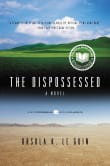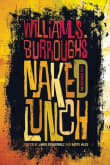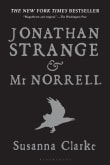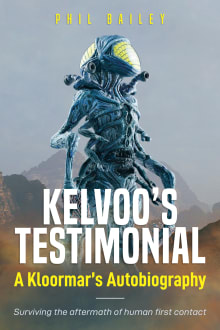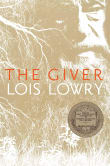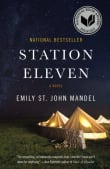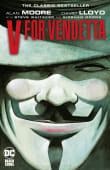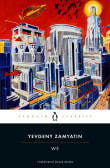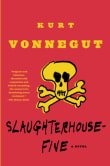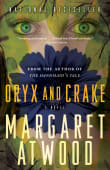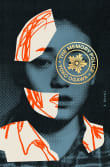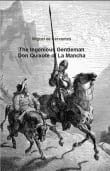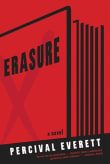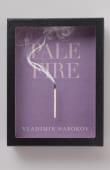Fahrenheit 451
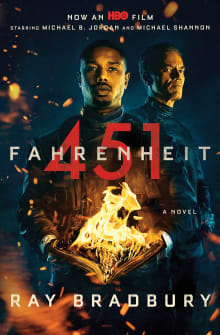
Book description
The hauntingly prophetic classic novel set in a not-too-distant future where books are burned by a special task force of firemen.
Over 1 million copies sold in the UK.
Guy Montag is a fireman. His job is to burn books, which are forbidden, being the source of all discord and…
Why read it?
21 authors picked Fahrenheit 451 as one of their favorite books. Why do they recommend it?

As a psychiatrist-novelist, I thought it would be interesting to re-read a book I had first read as a teenager -now, to look at it from a writerly point of view, and as an adult. The story remains original and well-told., This time, though, I paid more attention to the social context Bradbury was aiming to show, something that barely caught my attention the first time round. Interesting: a sci-fi classic with a message to think about now as much as when it was written.

Fahrenheit 451 is the temperature at which books burn, the temperature in which knowledge and ideas go up in flames.
The story follows Guy Montag, a fireman who begins to question the status quo and discovers the profound beauty in different ideas, narratives, and lessons contained within books. Ray Bradbury’s novel serves as a poignant cautionary tale of how government control can strip us of our power and understanding.
With book bans spreading across the country and attacks on various educational institutions, this is an essential read for anyone who values the written word and its transformative power to help…

Many of us read this book in high school. I read it this year because I'd been given a copy. I was honestly amazed. Written in 1953, it holds up marvelously well. There are, of course, some dated references, but I came away astonished by Bradbury's ability to anticipate the future, not just concerning devices such as wall-sized TV screens, but in his depiction of a culture fixated on entertainment. It's especially relevant to our iPhone generation. And no one writes like Ray Bradbury. It's a short, easy read, though the 60th anniversary edition has a number of extra articles…
If you love Fahrenheit 451...

As a librarian, I loved how books were deemed a threat in this work. Through fear-mongering and keeping people distracted by technology, people are imprisoned by ignorance without access to books. I particularly enjoyed the symbolism in the robotic murder dog—it can hunt down anyone and can find you anywhere.
Living under that level of technological threat searches for what it means to be human that much harder—but vital. But my favorite idea is that the knowledge we carry collectively has the power to save our humanity.
From April's list on scifi that make us meditate on our humanity.

I read this book relatively recently, not at school or when I was in my twenties, but when I was in my late thirties. I had heard of the novel, and the concept of burning books was all-too familiar as I studied a module on Holocaust literature at university. However, the premise of Ray Bradbury’s novel, written in 1953, was so simple yet so powerful.
It echoes with our own reality today, as although books are not being burned, we are seeing the art of writing itself being "burned" or minimized by tools such as AI or social media. The…
From Dan's list on dystopian books that could actually happen.

I love this book because it is well-written, prescient, and has withstood the test of time!
This book contains many facets of wisdom that reveal themselves to readers of any age. It is a good story and, at its core, a message that has gone on haunting me, that is, the joy and importance of reading.
If you love Ray Bradbury...

In the dystopian future that Bradbury creates, technology has eliminated the need for books.
We are not smarter in this future without history or literature, in fact, we are dumber, relying on meaningless entertainment to fill the intellectual void created by the written word’s eradication. Many successful science fiction authors are masters of the craft of writing, but Bradbury is on another level.
His stark vision of the future is propelled by ordinary characters living in extraordinary times, with each setting painted with beautiful prose that is both prophetic and thought provoking. The Dewey Decimal System has no hold on…
From James' list on technological advances having a double-edged sword.

Probably the most well-known books of classic sci-fi and a true masterpiece by Bradbury. Original, but with undertones of the same human traits of controlling the population, squashing individual thinking, and the escapism and magic of imagination through the pages of books.
Again, love for another human, and the excitement of babbling in forbidden pastimes are two of the themes of this book, as well as rising above the evil big brother.
From Robbie's list on sci-fi from the 1950s.

Fahrenheit 451 shows us that society can just be flat-out wrong about things.
It delivers that age-old lesson that just because everybody else believes something, it doesn’t mean that it’s true. Montag is looked at as a freak because he wants to save books at a time when everybody around him just wants to watch them burn. His journey reminds us of how vital knowledge is, and how important it is to preserve our right to learn and understand the truth about the world.
I’ve been an avid reader since the day I could form letters into words, so I…
From M. R.'s list on doing what is right when others are against you.
If you love Fahrenheit 451...

Indoctrination is the key in this very interesting book.
Western society permanently blames other cultures about brain-washing of the people, but refrains to talk or admit its own. I can see the religious indoctrination of our Christian Society; the money-minded, capital compelled, behavior of our masses. I can see the entertainment curtain pushing people away from books.
In this story about the future of humanity, the smoke enlightens and corrects the path to follow, using a simple tool: fire, to torch books and withdraw imagination to obtain a perfectly aligned and ignorant civilization.
But you, reader, as myself, will preserve…
From Paul's list on the Western’s social unrest and decay.
Want books like Fahrenheit 451?
Our community of 12,000+ authors has personally recommended 100 books like Fahrenheit 451.




